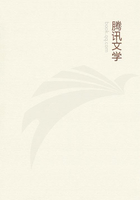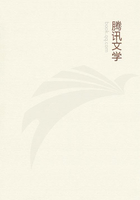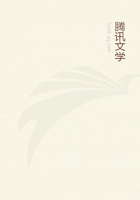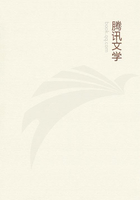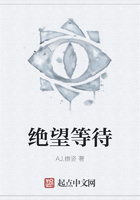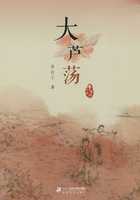In the wish to get the best information that I could on these matters, I made a voyage to Tyre in Phoenicia, hearing there was a temple of Hercules at that place, very highly venerated. I visited the temple, and found it richly adorned with a number of offerings, among which were two pillars, one of pure gold, the other of emerald, shining with great brilliancy at night. In a conversation which I held with the priests, I inquired how long their temple had been built, and found by their answer that they, too, differed from the Greeks. They said that the temple was built at the same time that the city was founded, and that the foundation of the city took place two thousand three hundred years ago. In Tyre I remarked another temple where the same god was worshipped as the Thasian Hercules. So Iwent on to Thasos, where I found a temple of Hercules which had been built by the Phoenicians who colonised that island when they sailed in search of Europa. Even this was five generations earlier than the time when Hercules, son of Amphitryon, was born in Greece. These researches show plainly that there is an ancient god Hercules; and my own opinion is that those Greeks act most wisely who build and maintain two temples of Hercules, in the one of which the Hercules worshipped is known by the name of Olympian, and has sacrifice offered to him as an immortal, while in the other the honours paid are such as are due to a hero.
The Greeks tell many tales without due investigation, and among them the following silly fable respecting Hercules:- "Hercules,"they say, "went once to Egypt, and there the inhabitants took him, and putting a chaplet on his head, led him out in solemn procession, intending to offer him a sacrifice to Jupiter. For a while he submitted quietly; but when they led him up to the altar and began the ceremonies, he put forth his strength and slew them all." Now to me it seems that such a story proves the Greeks to be utterly ignorant of the character and customs of the people. The Egyptians do not think it allowable even to sacrifice cattle, excepting sheep, and the male kine and calves, provided they be pure, and also geese. How, then, can it be believed that they would sacrifice men? And again, how would it have been possible for Hercules alone, and, as they confess, a mere mortal, to destroy so many thousands? In saying thus much concerning these matters, may I incur no displeasure either of god or hero!
I mentioned above that some of the Egyptians abstain from sacrificing goats, either male or female. The reason is the following:- These Egyptians, who are the Mendesians, consider Pan to be one of the eight gods who existed before the twelve, and Pan is represented in Egypt by the painters and the sculptors, just as he is in Greece, with the face and legs of a goat. They do not, however, believe this to be his shape, or consider him in any respect unlike the other gods; but they represent him thus for a reason which I prefer not to relate. The Mendesians hold all goats in veneration, but the male more than the female, giving the goatherds of the males especial honour. One is venerated more highly than all the rest, and when he dies there is a great mourning throughout all the Mendesian canton. In Egyptian, the goat and Pan are both called Mendes.
The pig is regarded among them as an unclean animal, so much so that if a man in passing accidentally touch a pig, he instantly hurries to the river, and plunges in with all his clothes on. Hence, too, the swineherds, notwithstanding that they are of pure Egyptian blood, are forbidden to enter into any of the temples, which are open to all other Egyptians; and further, no one will give his daughter in marriage to a swineherd, or take a wife from among them, so that the swineherds are forced to intermarry among themselves. They do not offer swine in sacrifice to any of their gods, excepting Bacchus and the Moon, whom they honour in this way at the same time, sacrificing pigs to both of them at the same full moon, and afterwards eating of the flesh. There is a reason alleged by them for their detestation of swine at all other seasons, and their use of them at this festival, with which I am well acquainted, but which I do not think it proper to mention. The following is the mode in which they sacrifice the swine to the Moon:- As soon as the victim is slain, the tip of the tail, the spleen, and the caul are put together, and having been covered with all the fat that has been found in the animal's belly, are straightway burnt. The remainder of the flesh is eaten on the same day that the sacrifice is offered, which is the day of the full moon: at any other time they would not so much as taste it. The poorer sort, who cannot afford live pigs, form pigs of dough, which they bake and offer in sacrifice.
To Bacchus, on the eve of his feast, every Egyptian sacrifices a hog before the door of his house, which is then given back to the swineherd by whom it was furnished, and by him carried away. In other respects the festival is celebrated almost exactly as Bacchic festivals are in Greece, excepting that the Egyptians have no choral dances. They also use instead of phalli another invention, consisting of images a cubit high, pulled by strings, which the women carry round to the villages. A piper goes in front, and the women follow, singing hymns in honour of Bacchus. They give a religious reason for the peculiarities of the image.
Melampus, the son of Amytheon, cannot (I think) have been ignorant of this ceremony- nay, he must, I should conceive, have been well acquainted with it. He it was who introduced into Greece the name of Bacchus, the ceremonial of his worship, and the procession of the phallus. He did not, however, so completely apprehend the whole doctrine as to be able to communicate it entirely, but various sages since his time have carried out his teaching to greater perfection.

